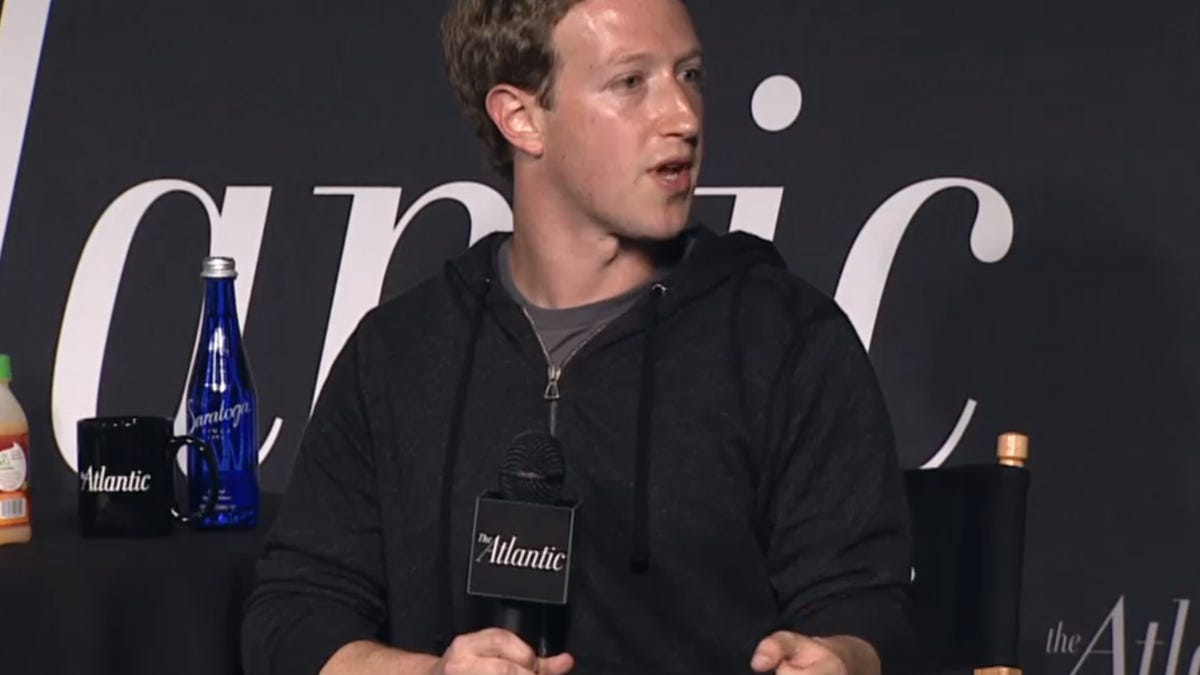Zuckerberg: Thanks NSA, now people trust Facebook even less
It's not just Facebook. The trust metrics for all major Internet companies have gone down since the NSA scandal broke, says the social network's CEO.

Facebook CEO Mark Zuckerberg admitted Wednesday that the social network and its competitors are suffering in the perception department after stories of the National Security Agency's various spying initiatives, starting with Prism, came to light.
Zuckerberg, speaking in an interview with Atlantic Editor in Chief James Bennet, said that his company tracks people's trust in Facebook and every major Internet company it deems relevant. The trust metrics for Facebook, Twitter, and Google have all gone down since the NSA scandal first broke, he said.
"There's a lot of times where ... someone will criticize us in the press over privacy. What we've found is that stuff tends to not actually move the needle that much on the brand perception around trust," he said. "The NSA stuff did."
Though seemingly contradictory, Zuckerberg noted that member engagement behaviors such as sharing, liking, and commenting have not been affected by the scandal. People may trust Facebook less, but they're still using the social network just as frequently as they always have.
The Facebook chief's speaking engagement came a week after an appearance at TechCrunch Disrupt where he said that the NSA "blew it" on communication. Wednesday, Zuckerberg repeated many of the same talking points around pushing for more government transparency.
Separately, the social network's head honcho addressed another perception problem: that Facebook isn't cool. Instead of trying to convince us otherwise, Zuckerberg likened the service to electricity, which he said "maybe" was "cool when it first came out, but pretty quickly people stopped talking about it because it's not the new thing."
The thing to track instead, he said, is whether people still turn on their lights.
"People assume that we're trying to be cool. That's never been my goal," Zuckerberg said while laughing. "I'm think I'm the least cool person there is."
The point of the comments, of course, was to ease the concerns of investors and company watchers who may fear that Facebook is losing cool points with teens and tweens who are picking up hipper apps like Snapchat and WhatsApp.
Wednesday's appearance was coordinated with Zuckerberg's visit to Washington D.C. to lobby members of Congress on the immigration reform agenda of his political action group FWD.us. When pressed for his personal political affiliation, Zuckerberg ducked the question altogether, identifying himself instead as "pro knowledge economy."

